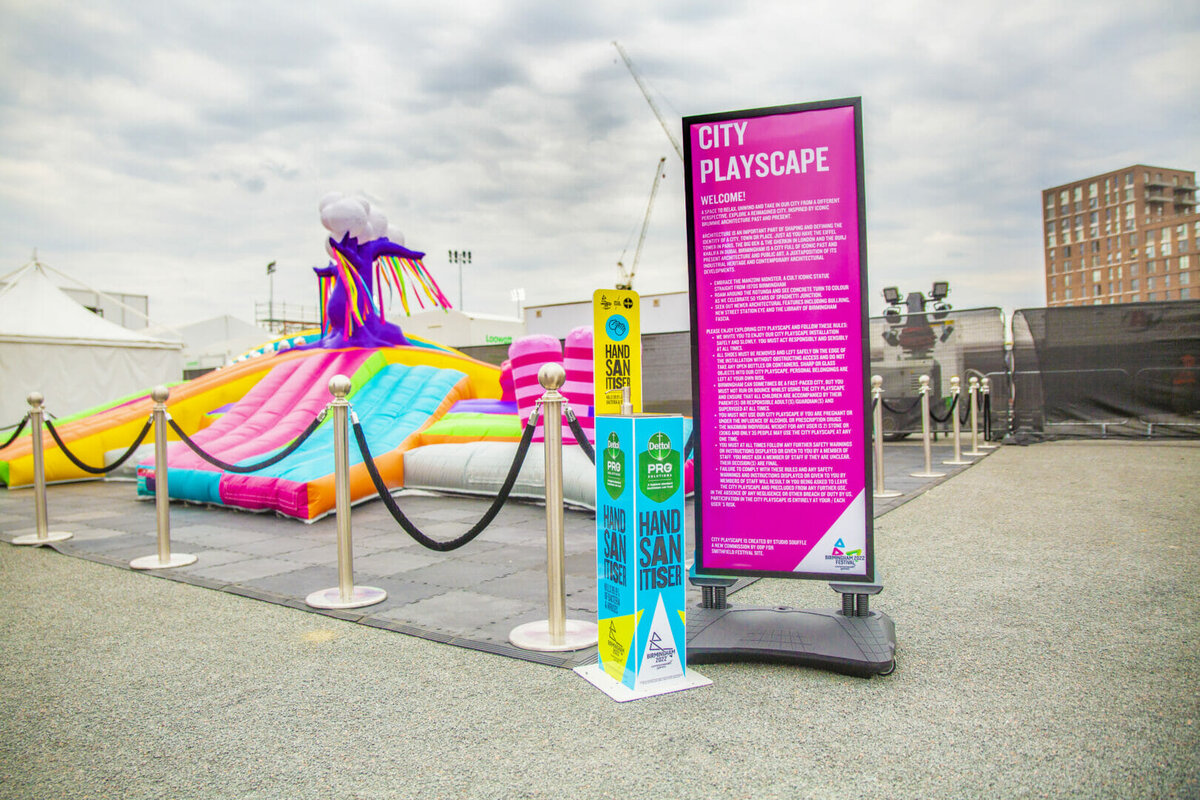By Dr Lisa Ackerley, CEnvH, FRSPH
Director of Medical and Scientific Engagement, Hygiene at Reckitt
Cleanliness and hygiene are always high on the agenda for hospitality businesses and the pandemic has only served to heighten awareness of the importance of hygiene. Whilst all venues adjust to the new normal, large-scale events such as the Birmingham 2022 Commonwealth Games – kicked off in July – present even more complex challenges for operators in this space. Effective hygiene programmes are part of the new normal, but the question remains: in these financially challenging times, how can hospitality businesses give confidence to their guests by adopting hygiene best practice without an increased cost burden? The answer could lie in the adoption of a Targeted Hygiene programme such as the one by Dettol Pro Solutions, which is a science-backed approach, and was being used at the Birmingham 2022 Commonwealth Games.
The Games was the biggest sporting event held in the UK since the pandemic with an estimated one million spectators and attendees.
Measures should also be put in place to make hand washing as easy as possible, such as encouraging staff and customers to sanitise or wash their hands regularly and at critical times – for example, upon arrival at the premises. In a study modelling virus spread in a restaurant setting, contaminated hands spread the virus to a wide number of surfaces and objects, including the table and chairs, menus, pens, and others’ hands. Disinfecting these fomites was found to reduce risks of transfer to subsequent customers.1
Good hygiene is not only about whether hygiene interventions are practised with efficacious products, but at what moments, how frequently and how well; interventions should be put into place when and where they are most effective. Known as Targeted Hygiene, the focus lies on disinfecting high touch point surfaces where virus and bacteria transmission is most likely and implementing hand hygiene at points that help to break the chain of infection – rather than carrying out time – and product – heavy ‘deep cleans’ every day.
Personal hygiene also plays a key role. For hospitality staff, it should cover handwashing, clothing, and general hygiene protocols. Correct handwashing with water or soap is essential to help prevent contamination. Studies show that handwashing with water alone reduces the presence of bacteria to 23%, whilst handwashing with plain soap and water reduces the presence of bacteria to 8%2.
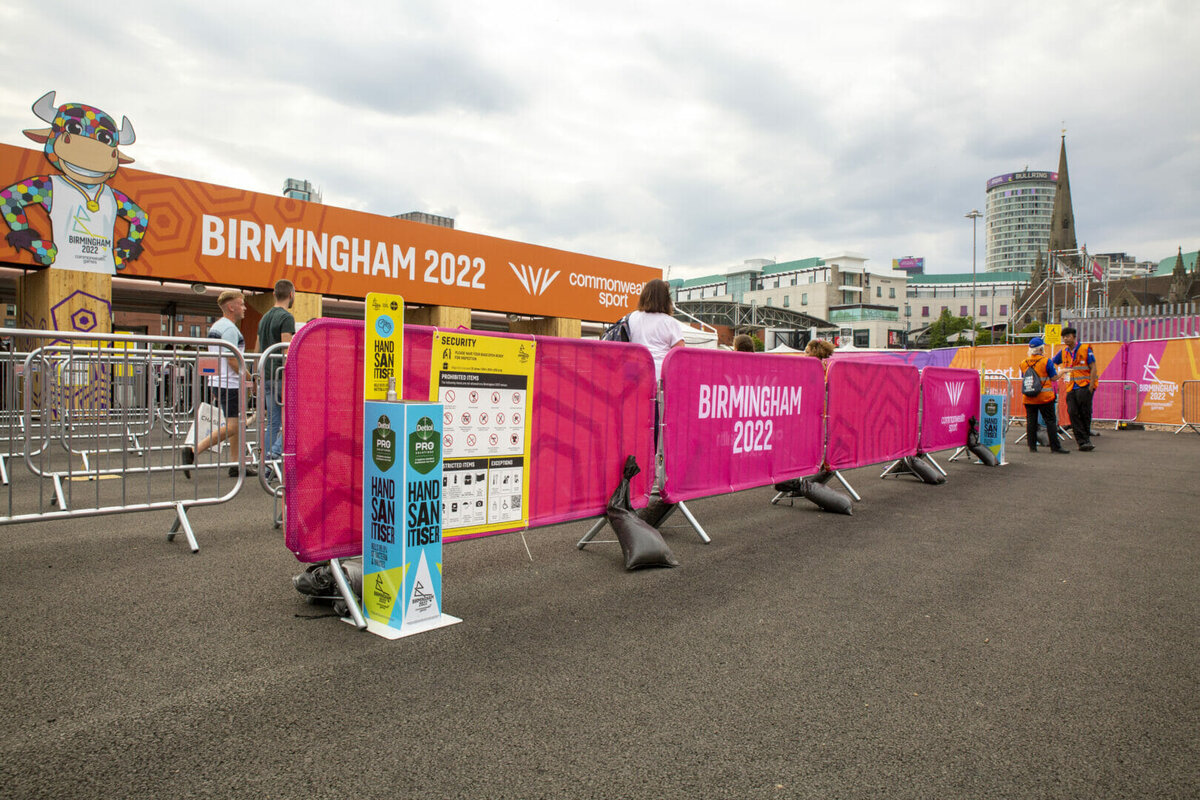
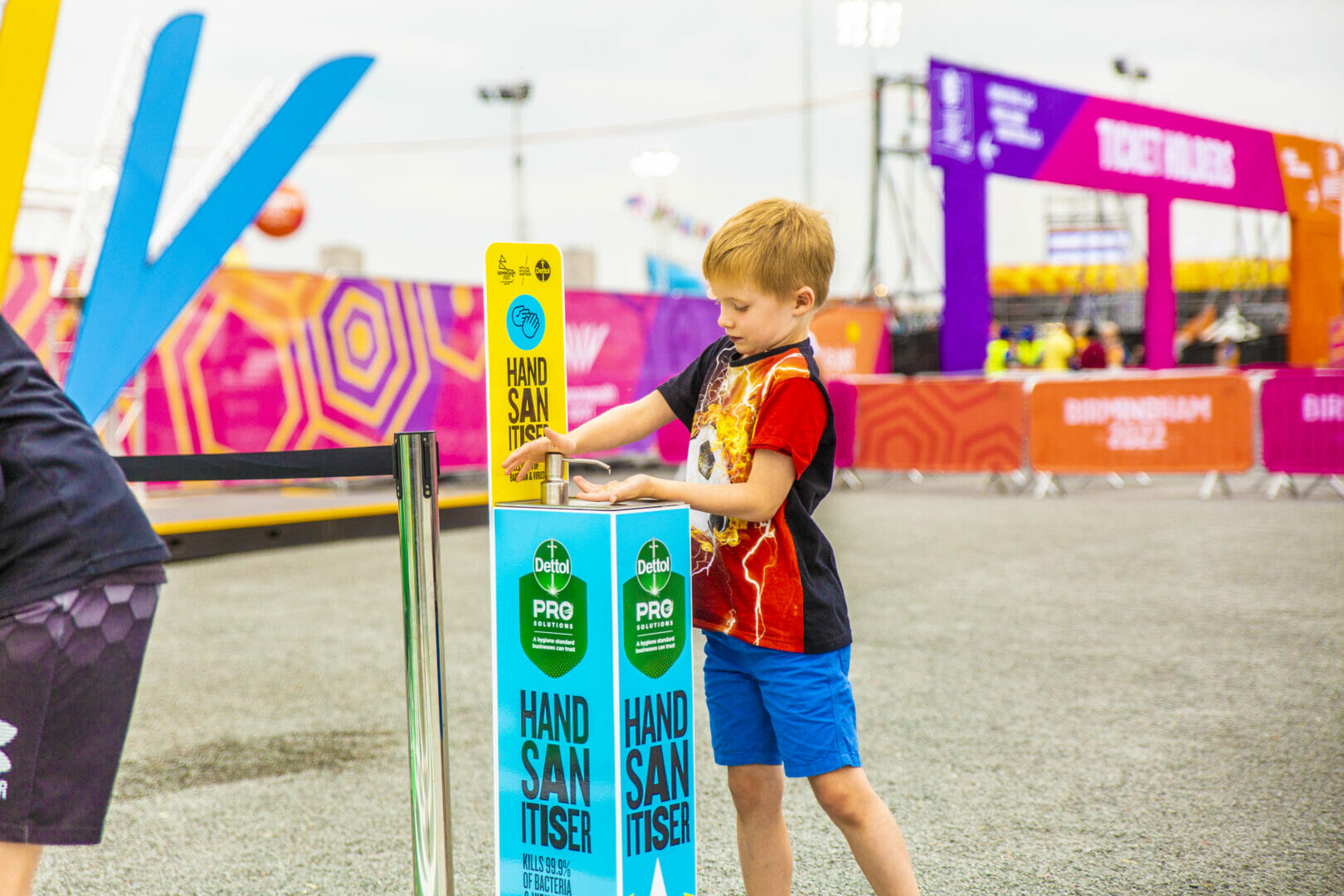
It is not enough to tell people to wash their hands “frequently”, but it is about providing the opportunity to do so at key moments, and to remind, encourage and motivate people to take action at the most appropriate moments.
The following steps, implemented at the Games, could be adopted equally to other applications such as hospitality, catering and F&B businesses looking to instil confidence and peace of mind among employees and consumers:
● Identify high-touch ‘hotspots’: Areas that are frequently touched and shared represent potential hotspots (e.g. lifts, buttons, doorknobs, bathroom fittings such as taps, door locks and toilet flush handles). Additionally in hospitality, Front of House tables and seating areas, tables and other customer touch points would be included.
● Devise an effective protocol: Implement a targeted hygiene approach that is informed by science, to help break the chain of infection, taking care to consider when to clean and disinfect as well as “how”.
● Use trusted products: Use products with efficacy proven on viruses and bacteria. When used as per instructions of use, products could significantly reduce the germs on surfaces or hands.
● Encourage and motivate people to adopt good hand hygiene practices: At Birmingham 2022, Dettol antibacterial Hand Sanitiser Gel has been placed strategically to encourage use, alongside messaging to make good hand hygiene the norm. Furthermore, messaging on the back of toilet cubicle doors means that people are reminded of the need to wash their hands at a timely moment – giving them the knowledge, motivation and opportunity to do the right thing. This is a simple and cost effective intervention, and with a bit of ingenuity can even be made fun and with your house style.
● Timing, frequency, and verification of protocols: Once cleaning and disinfection protocols are established, the critical element to reducing the potential for viruses and bacteria transmission is the timing and frequency of cleaning and disinfection. High traffic areas require attention more frequently than lesser used parts of a building. In some circumstances, cleaning and disinfecting will need to take place after use – for example at a restaurant table. It is critical that protocols are practical and achievable and may need refining from time to time as circumstances change.
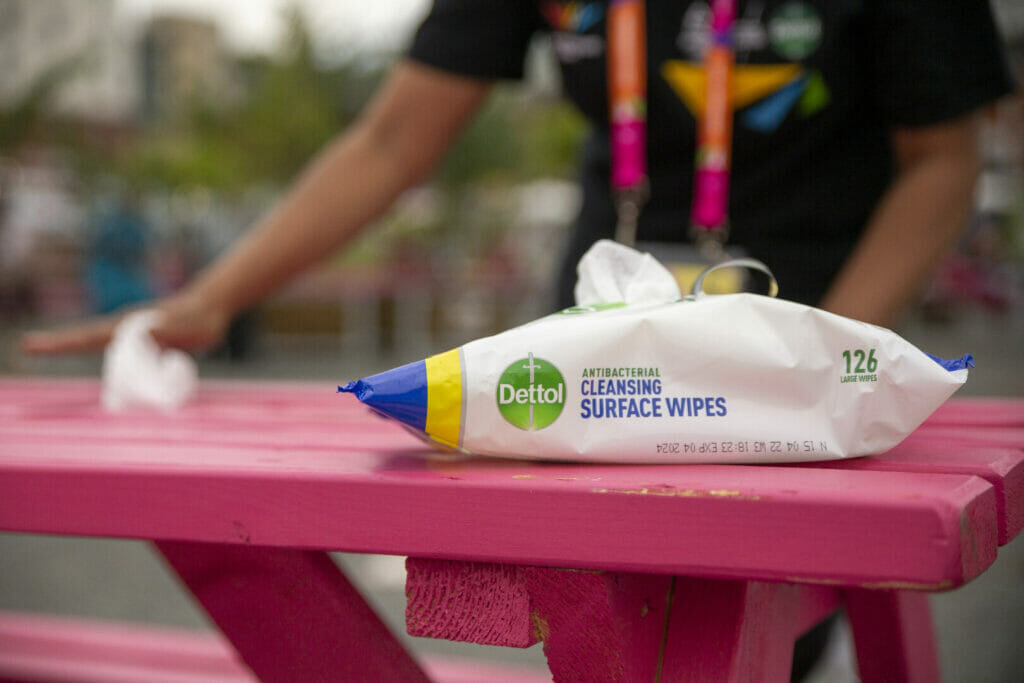
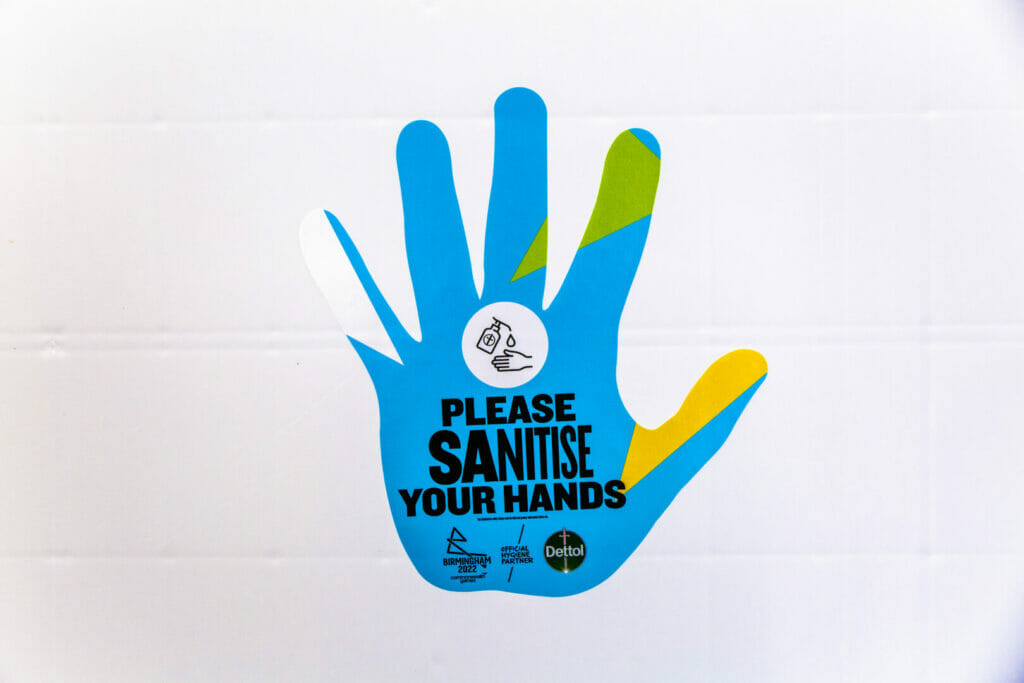
Caterers, bar staff, accommodation hosts and additional F&B staff and volunteers were present at The Games, working tirelessly behind the scenes to make the hospitality experience the best it can be for athletes and fans. Coming out of the pandemic and coming out of this one-in-a-lifetime event, one thing is certain: applying hygiene protocols today will help to secure the confidence of customers tomorrow.

